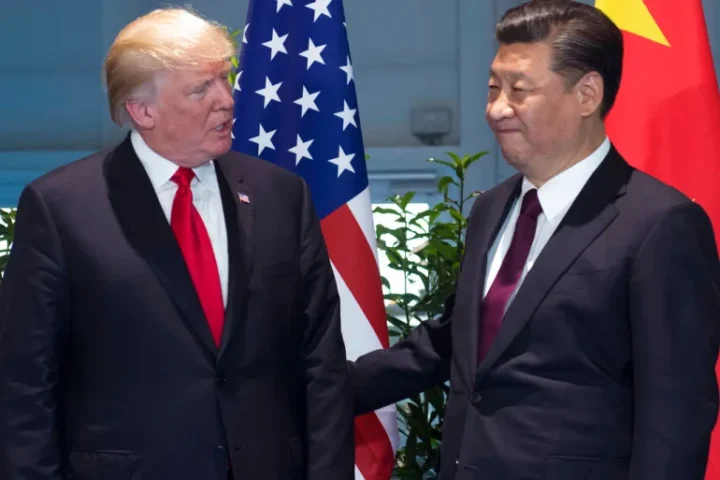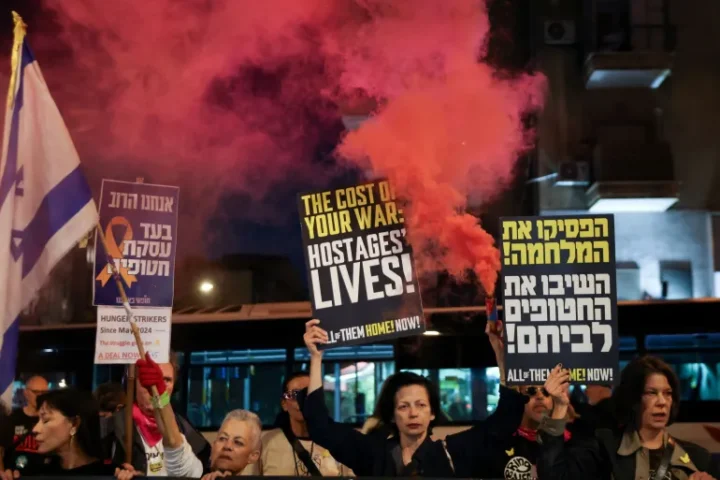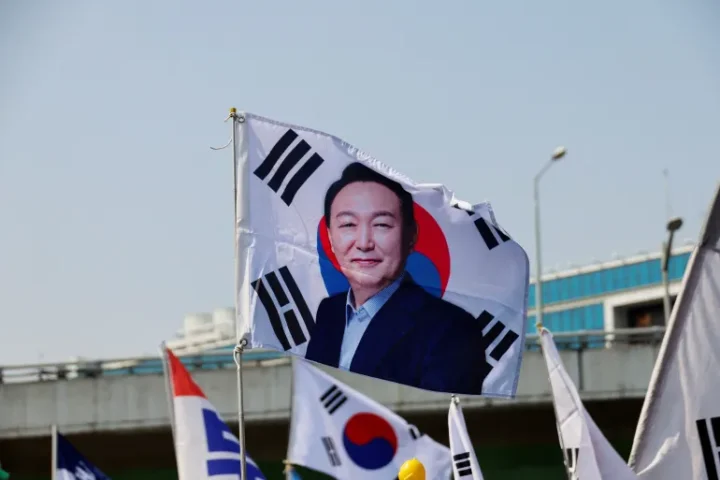From President Zelenskyy down, Ukrainian officials have come up with increasingly frank ways to articulate the conflict with Russia.
This is a line from an official report from Ukraine’s defence ministry – and part of the ever-expanding wartime vocabulary used by top officials, military and media.
The subtext is simple – especially after the harrowing reports on the killing of civilians by rampaging soldiers, indiscriminate shelling or cruise missiles gone awry.
“They’re orcs because we don’t consider them human,” Tetiana Chursina, a sales clerk in Kyiv, whose second cousin spent weeks in her basement in the Kyiv suburb of Bucha,.
Russian troops labelled ‘rashists’
“Rashist” is another epithet frequently used to describe Russian troops.
The neologism combines “Russian,” “racist” and “fascist” – and is immediately understandable to those who grew up in the former Soviet Union.
Even though the term “fascist” refers to Benito Mussolini’s regime in Italy, in the USSR, it mostly denoted German Nazis whose army and allies occupied most of Ukraine during World War II.
Some anti-Soviet Ukrainians collaborated with Nazis and have been lionised by post-Soviet governments – moves the Kremlin-friendly media focus on.
Because in Vladimir Putin’s Russia, the Kremlin-approved story of Soviet Moscow’s role in defeating Nazism, which some observers consider exaggerated, has become a pillar of official dogma.
Ukrainians may call a Russia-appointed mayor of an occupied town a “Gauleiter”, a German term for an occupied region’s satrap, or simply call a collaborator a “Polizei”, German for police.
But Ukraine’s wartime language has gone far beyond the use of German or Tolkien’s prose.
Ukrainian leaders, officials and military officers communicate with mass media and the public in new and effective ways in an information war.
In doing so, they are breaking with Ukraine’s Soviet past, when Communist leaders bored their audiences with monotonous, hours-long speeches.
Regional officials play a central information role
These days, Ukrainian mayors, governors and defence officials have a Telegram, Twitter or Facebook account – and inform audiences about developments in their jurisdictions right away, without any approval of higher-ups in Kyiv.
Ukrainians rely on their posts, live streams and videos – and appreciate their sincerity.
There are new national stars – such as Oleksiy Arestovych, an aide to Zelenskyy.
Arestovych has been hosting daily news conferences since day one of the invasion.
His optimistic, soothing and sarcastic briefings have made him “the psychotherapist of all Ukraine” and a meme advertising “sedative pills” named after him has been circulating online.
And when Arestovych is not able to deny or confirm something, he uses other ways of getting his message across.
On April 1, an explosion roiled Belgorod, a western Russian city that borders Ukraine and hosts military bases and depots. It destroyed a giant fuel storage – and was widely ascribed to a Ukrainian missile attack.
“Maybe, someone had a cigarette in the wrong place?” Arestovych said and winked.
Another wartime media darling is Vitaliy Kim, a governor of the southern Mykolaiv region.
In his videos, tweets and Facebook posts, Kim, whose father is ethnic Korean, mostly speaks Russian.
But nobody seems to mind, contrary to what the Kremlin says about the “discrimination” against Russian-speakers in “Nazi Ukraine”.
“Good evening, we’re from Ukraine,” is how Kim begins his nightly videos, a phrase already seen on T-shirts and Facebook profile photos.
‘Verbal blasts of anger’
Of course, Zelenskyy, Ukraine’s comedian-turned-president, rules the roost when it comes to being sincere, totally unofficial – and a bit vulgar.
“Stinking bastards! What else can you call them?” he said about Russian forces on April 23, hours after a Russian cruise missile killed three-month-old Kira Glodan, and her mother Valeria, in the Black Sea port of Odesa.
“This is the phrase one couldn’t possibly imagine coming from a nation’s president in public six months ago,” Mykhailo Krigel, a veteran Ukrainian journalist and editor,
The war’s first meme – “Russian warship, go f*** yourself!” – quoted the response by Ukrainian sailors who refused to surrender to a Russian vessel on February 25 and opened the floodgates of reshaping the boring legalese officials use, he said.
The phrase has been repeated endlessly – and was seen on billboards throughout Kyiv in the first weeks of the war.
The use of obscenities against Russian servicemen – as well as their demonisation – has an immediate psychological effect.
“This is the simplest way to get out of stress, to unblock a verbal blast of anger, that hits the target immediately,” Kriger said.
Most importantly, the new language of war helps change the way Ukrainians see themselves – and are perceived worldwide.
“We’re finally getting rid of this image of an eternal victim. These days, the world sees us as winners who can kick Russian ass,” Serhiy Babenko, a 32-year-old tobacconist from the Kyiv suburb of Boryspil,






